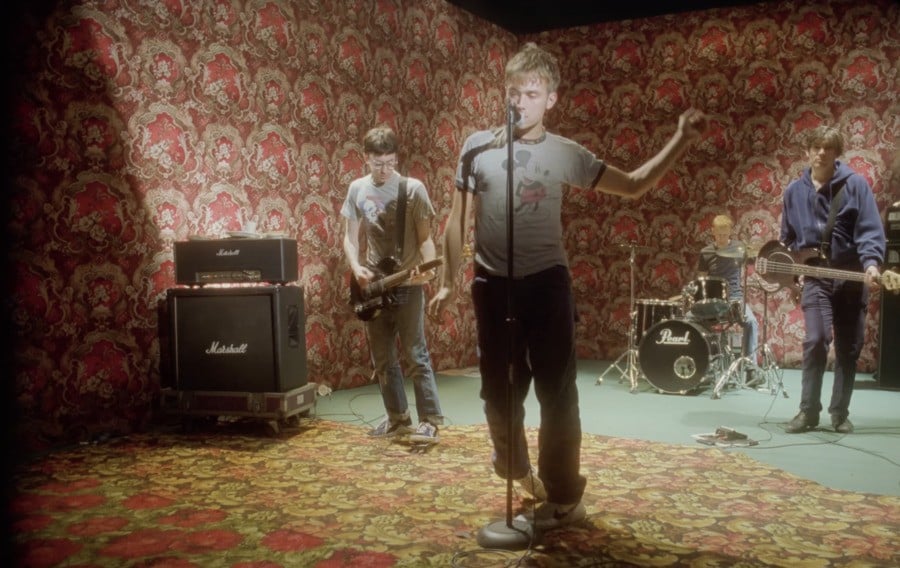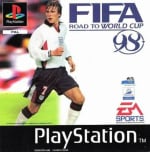
We recently spoke to the key creatives behind FIFA Road to World Cup 98, one of the most transformative entries in the long-running soccer series.
As noted in the piece, this entry was the first in the franchise to use licensed music from real-world acts rather than rely solely on in-house tracks. Blur, The Crystal Method and Electric Skychurch all feature, with Blur's iconic Song 2 memorably playing during the game's FMV introduction sequence.
These days, it's hard to think of FIFA (or EA Sports FC, as it is now known) without licensed music, but surprisingly, there was some resistance to this during FIFA Road to World Cup 98's development.
Sound designer and programmer Robert Bailey explains:
We had one guy who was particularly passionate about doing the music licensing and he pursued that. It was an interesting synergy. But the notion of licensing somebody else’s stuff rather than writing the stuff yourself was initially deemed to be kind of offensive; there was a bit of pushback from the people in the audio department about it. But ultimately, it came to be seen as, ‘Okay, that’s a valid marketing kind of a thing’. I get it now, but it doesn’t mean I was really happy about it at the time.
It turns out that objections to licensed tracks came from higher up within EA, too. The company's CEO and president at the time, Larry Probst, had actually gone as far as to tell his staff to avoid using licensed tracks in order to keep costs down.
As producer Marc Aubanel recalls:
Larry Probst came to a meeting and said, ‘No more licensing music' and we were sort of sitting in this meeting like looking at each other. What had happened was Road Rash had come out on 3DO and licensed a whole bunch of songs and they gave away a royalty, whereas in the film & TV industry, you paid a flat fee. They were basically giving them a piece of the profit, which is kind of crazy because music at the end of the day is ancillary to the gameplay experience. You can have the greatest music in the world, but if the game sucks it ain’t going to sell anything. Unless you’re talking about Guitar Hero, it’s hard to see that as a primal element of a game.
So we sort of panicked and we said, ‘Well, that’s screwed up’, and we didn’t tell Larry. Then, later on, we played the game at a review and Larry shouted, ‘Stop!’ and started yelling at us. He was like, ‘Why the fuck did you put music in the game?’ And we said, ‘Well, a salary is X many dollars a year and it basically cost us 9 months of one person’s salary to get eight top 10 songs in the game'. He kind of went, ‘Oh, I guess that’s alright then.’ But we were sweating at the time.
As we've already said, Song 2's inclusion really raised the game for EA – and it apparently cost little more than four free tickets to a World Cup match.
EA Canada boss and (then) series executive producer Bruce McMillan explains:
The guys, Damon and Alex specifically, wanted four tickets to the World Cup on the centreline and we had lots of tickets on the centreline. They were big football fans. Massive football fans. So it was not that difficult to get Song 2 at all. It was actually very very easy. They wanted to have a lot of eyeballs on their song and this is what they got with FIFA ‘98. We shipped a lot of units. So when something goes out and sells 10s of millions of copies, that’s more than most albums do.
Sean Ratcliffe, a marketing person at EA UK, clarifies this story:
We’d paid them for inclusion in the game, but we needed separate music publishing rights for TV spots. So we said, ‘We don’t actually have the budget to do that’ and their manager came back and said, ‘Hold on a minute, the guys in the band are massive football fans and you’ve got Road to World Cup and you’ve got the official license, right?’ We were like, ‘Yeah’. And they said they would waive the fee if we could get four World Cup final tickets.


